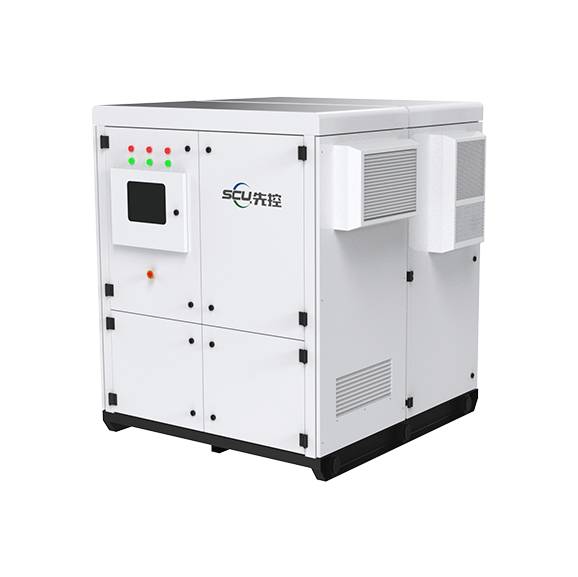With the increasing emphasis on the development and utilization of new energy sources in the country, distributed generation technology and microgrids have also rapidly developed. To cope with the problem of large energy fluctuations and unstable power supply of new energy sources, and further improve the reliability of power system operation, high-capacity energy storage technology has become increasingly important. The energy storage battery management system is divided into three management units from bottom to top, namely the subordinate control, main control, and general control units, corresponding to the battery monomer, battery module, and battery cluster in the battery system, respectively. The system monitors, manages, alarms, and emergency protects batteries in real time. It optimizes and controls the operation of battery modules, battery clusters, and battery systems for safety, ensuring the safe, reliable, and stable operation of batteries.
Subordinate control unit of the energy storage battery management system
The subordinate control unit of the energy storage battery mainly includes MCU, battery voltage acquisition module, battery temperature acquisition module, balancing module, thermal management module, and communication module. MCU, as the total control controller of the unit, monitors the voltage of the energy storage battery monomer in real-time through the voltage detection module, and balances the battery through the active balancing module according to the collected voltage information. The temperature detection module collects battery temperature and controls battery heating and heat dissipation through the thermal management module based on the temperature high and low. The CAN communication module communicates with the main control unit to real-time upload battery voltage, temperature information, and battery alarm information.
To cope with the capacity bucket effect caused by the imbalance of battery voltages within the group, the subordinate control unit balancing module adopts active balancing technology to balance batteries within the group, transferring the charge of high-voltage monomer batteries to low-voltage monomer batteries to ensure the consistency of battery voltage and increase battery capacity. Based on the detected temperature, the temperature detection module judges whether the internal temperature of the battery monomer is suitable for battery operation. If the internal temperature is higher than the upper temperature limit, the fan is started. If it is lower than the lower temperature limit, the heating module is started. The module’s thermal management is achieved by driving the relay through opening the circuit.
The subordinate control unit is connected to the main control unit via the CAN bus. Each subordinate control unit uploads its own battery voltage and temperature information according to the summon information of the main control unit. Temperature and voltage over-limit values are actively uploaded. Thus, when a fault occurs, the fault can be uploaded and processed in a timely manner.

Main control unit of the energy storage battery management system
The main control unit of the energy storage battery is responsible for managing multiple subordinate control units on a cluster of batteries. It uses the summon command to obtain single-cell information of the battery in the cluster and receive alarm information actively uploaded by the subordinate control unit. It calculates the charging and discharging current of the cluster of batteries through the current detection module, calculates the remaining battery capacity (SOC), and controls the switching of the battery cluster on the DC bus through the controllable switch. When the battery is detected to be fully charged, it disconnects from the bus. When the battery capacity is insufficient, it closes the switch to charge the battery, and quickly responds to the power demand issued by the general control module to provide power to the devices on the bus in a timely manner. The main control unit can also cut off the control switch in time according to the uploaded alarm information of the subordinate control unit, which can isolate the cluster from the DC bus when a fault occurs in a battery cluster, ensuring system reliability and safety.
General control unit of the energy storage battery management system
The general control unit is responsible for managing multiple main control units. The general control unit has on-site display function, and can display information on all cells of the battery system through touch screen. It optimizes and controls the operation of battery modules, battery clusters, and battery systems for safety, ensuring safe, reliable, and stable operation of batteries. It also has the configuration function, which can not only modify the parameters of the unit but also modify the parameters of the main control and subordinate control units via the CAN bus command. The general control unit has powerful communication ability, multiple bus interfaces, and realizes communication with the background monitoring system and power conversion system (PCS), uploading system information and receiving monitoring commands from the backend and PCS in real-time.
This article describes in detail a graded management and control system for energy storage batteries, which divides the management of energy storage batteries into three levels. It is suitable for large-scale energy storage systems, responding quickly to system faults, and improving system safety and stability.
